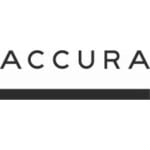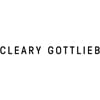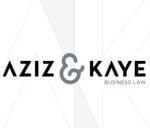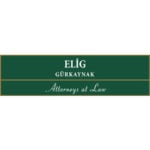-
What is the relevant legislative framework?
General legislative provisions on Cartels
In Switzerland, the legal framework governing cartels is set out in the Federal Act on Cartels and other Restraints of Competition (Cartel Act; CartA). The key provisions addressing cartel conduct are found in Articles 4 to 6 CartA.
Article 5(1) CartA in connection with article 4(1) CartA prohibits horizontal and vertical agreements (including concerted practices):
- that significantly restrict competition in a market for specific goods or services and are not justified on grounds of economic efficiency, or
- that eliminate effective competition.
Article 5(2) CartA provides an exemption for agreements significantly restricting competition that are justified on grounds of economic efficiency. To qualify, the agreement must:
- be necessary to reduce production or distribution costs, improve products or processes, promote research or dissemination of know-how, or enable more rational resource use; and
- not eliminate effective competition under any circumstances.
Article 6 CartA allows the Swiss Federal Council and the Competition Commission (ComCo) to define specific types of agreements that may be justified on efficiency grounds through ordinances and general notices. The Federal Council and ComCo have made use of this right on several occasions and in particular issued a Vertical Notice and a Motor Vehicle Ordinance (see below), each with explanatory notes.
In addition, Article 5(3) and 5(4) CartA defines a category of hardcore restrictions of competition. According to Article 5(3) CartA, the following horizontal agreements between actual or potential competitors qualify as hardcore restrictions:
- agreements to directly or indirectly fix prices;
- agreements to limit the quantities of goods or services to be produced, purchased, or supplied;
- agreements to allocate markets geographically or by trading partners.
According to Article 5(4) CartA, vertical agreements – i.e. agreements between undertakings at different levels of the production and distribution chain – qualify as hardcore restrictions when they involve:
- fixed or minimum resale prices; or
- territorial restrictions in distribution agreements that restrict or prevent sales by other distributors into allocated territories.
According to the Gaba decision of the Swiss Federal Supreme Court (BGE 143 II 297), as a rule, hardcore restrictions pursuant to Article 5(3) and 5(4) CartA are deemed to significantly restrict competition. This implies that ComCo does not need to prove actual market impact or implementation. Even if the agreement has minimal or no actual effect, it can still be sanctioned unless justified on grounds of economic efficiency. However, the court clarified that hardcore restrictions can only be justified under very strict conditions and has expressly ruled out the application of a de minimis exception (e.g. low market shares or low impact) in the case of hardcore restrictions.
Sector-Specific Provisions: Motor Vehicle Industry
The Ordinance of 29 November 2023 on the Treatment of Vertical Agreements in the Motor Vehicle Sector (Motor Vehicle Ordinance; MVO) governs vertical agreements in the automotive sector. It codifies prior ComCo practice and identifies anti-competitive practices such as:
- territorial restrictions and warranty limitations;
- tying the sale of vehicles or spare parts to maintenance services;
- restrictions on multi-brand sales;
- limited access to technical data and tools for modern vehicle systems.
Sector-Specific Provisions: Labour market
According to ComCo case law, agreements between employees as well as collective labour agreements (“Gesamtarbeitsverträge“; “convention collective de travail“) are excluded from the scope of the Swiss Cartel Act. Consequently, employee unions and other worker representatives are free to negotiate wages, benefits, and working conditions with individual employers or employer associations. However, ComCo has clarified that this exemption is narrow. Outside of these specific employee-side agreements, the labour market does fall under the Swiss Cartel Act. As a result, any coordination between employers – such as agreeing or exchanging information on salary levels or benefits, or entering into no-poach arrangements – may be considered unlawful price-fixing and subject to enforcement under Swiss competition law.
Legislative provisions for investigating cartel conduct
The relevant provisions for investigating cartel conduct are set out in Articles 26-31 CartA, which govern the investigation of potential restraints of competition. Articles 49a-53 CartA, together with the Ordinance of 12 March 2004 on Sanctions imposed for Unlawful Restraints of Competition (Cartel Act Sanctions Ordinance, CASO), regulate the sanctions for unlawful restraints of competition.
Price Supervision Act
In addition to the competition authorities, there is an independent authority known as the Commissioner for Price Supervision (also referred to as the Price Supervisor). This authority is responsible for overseeing pricing. The legal framework governing price supervision and the powers of the Price Supervisor are defined in the Swiss Price Supervision Act.
Unlike the Competition Commission and its Secretariat, which focus primarily on enforcing competition law, the Price Supervisor monitors prices in markets where competition is limited or absent, such as public transport, postal services, healthcare, and utilities. He ensures that prices are not abusive or unjustified. Furthermore, the Price Supervisor investigates cases in sectors such as banking, digital platforms, and pharmaceuticals, where prices may be artificially inflated due to market power. For example, in May 2025, the Price Supervisor ordered Booking.com to lower its commission rates for Swiss hotels by almost a quarter.
-
To establish an infringement, does there need to have been an effect on the market?
Hardcore restrictions (such as price fixing, bid-rigging, market or customer allocation, quantity restrictions, territorial restrictions and resale price maintenance) according to Article 5(3) and (4) CartA are presumed to significantly restrict competition. For such agreements, the authority does not need to prove actual market effects. Market share, implementation, or economic impact do not need to be demonstrated.
For non-hardcore restrictions (such as certain vertical agreements or cooperation agreements) under Article 5 para 1 and 2 CartA, the “effects-based” approach still applies, meaning that the agreement must have a significant impact on competition. The authority must take into account both qualitative and quantitative criteria, which are weighed on a case-by-case basis in an overall assessment. Consequently, a qualitatively serious restriction may be deemed significant despite having a quantitatively minor impact, and vice versa.
-
Does the law apply to conduct that occurs outside the jurisdiction?
Yes. According to Article 2 (2) CartA, the Swiss Cartel Act applies to practices that have an effect in Switzerland, even if they were caused outside of Switzerland and irrespective where an undertaking involved has its registered seat or office. According to the case law of the Swiss Federal Supreme Court, the Swiss Cartel Act applies if practices could potentially have an effect in Switzerland.
-
Which authorities can investigate cartels?
The competent authorities to investigate cartels are the Swiss Competition Commission (“ComCo”) and the Secretariat of the Competition Commission (“ComCo Secretariat”), which are located in Bern, Switzerland.
The ComCo Secretariat is the investigating body that conducts proceedings under the Cartel Act. The ComCo Secretariat can conduct market observations and preliminary investigations, and – in consultation with a member of the presiding body of ComCo – it can open cartel investigations. The ComCo Secretariat prepares the case files and makes proposals to ComCo for decisions (statement of objections). It also serves as contact point for businesses, members of the public and authorities for competition law questions. The ComCo Secretariat is divided into four divisions that are responsible for specific markets: Product Markets, Services, Infrastructure and Construction.
The ComCo is the decision-making body and takes its decisions based on the statement of objection of the ComCo Secretariat and the statements of the undertakings affected by the investigation. The ComCo comprises between 11 and 15 members (currently 12 members) who are elected by the Federal Council. It has a three-member presiding committee. The law requires that the majority of the ComCo members must be independent experts. These are usually professors of law or economics. The other ComCo members are representatives of business associations and consumer organizations.
-
How do authorities typically learn of the existence of a potential cartel and to what extent do they have discretion over the cases that they open?
The Swiss competition authorities have different ways to learn of the existence of a potential cartel, in particular:
- Leniency Application: A self-disclosure of an undertaking involved in cartel conduct offering substantive information about a cartel in exchange for immunity or reduced penalties. ComCo offers a notification form for leniency applications as well as an electronic form to declare to submit a leniency application (e-marker).
- Complaints or reports filed by potential cartel victims (such as competitors, customers, suppliers, distributors, etc), other authorities or third parties against undertakings that potentially restrict competition. ComCo offers an electronic form and a specific whistleblowing e-mail address ([email protected]) to report suspected infringements of competition law.
- Market observations and ex officio investigations: ComCo Secretariat monitors and observes various markets and may conduct ex officio investigations if it suspects anti-competitive conduct. ComCo Secretariat developed a screening tool to discover potential bid-rigging based on data obtained from procurement bodies.
- Cooperation and exchange of information with other competition authorities: The agreement between the Swiss Confederation and the European Union concerning cooperation on the application of their competition law that entered into force on 1 December 20214 enables the ComCo and the Directorate-General for Competition of the European Commission to notify and coordinate enforcement activities and to exchange information. On 1 September 2023, the agreement between Switzerland and Germany concerning cooperation and coordination between the competition authorities entered into force and enables ComCo and the German Federal Cartel Office to notify and coordinate enforcement activities and to exchange information. Further, ComCo actively participates in different networks of competition authorities such as the Competition Committee of the Organisation for Economic Co-operation and Development (OECD) or the International Competition Network (ICN).
According to the opportunity or discretionary principle (Opportunitätsprinzip) and the principle of proportionality (Verhältnismässigkeitsprinzip), the ComCo Secretariat and ComCo have wide discretion regarding whether to open an investigation into a possible infringement of competition law. In particular in case of minor offenses, ComCo can decide to refrain from opening an investigation based on the opportunity principle. A proportionality test can help to decide whether proceedings can be dispensed with. The criteria for such a proportionality test may include the resources required for further investigations into the possible restriction of competition and the economic or socially harmful effects of the possible restriction of competition.
-
What are the key steps in a cartel investigation?
The main milestones of a formal cartel investigation in Switzerland are as follows:
Investigation Procedure of ComCo Secretariat (duration: 1-5 years)
- Suspicion of a violation of the Cartel Act
- Leniency Application
- Complaint
- Whistle Blower
- Ex officio investigation based on other sources (e.g., media reports, information provided by federal, cantonal or communal authorities, market observations)
- Opening of an investigation
- Investigation of the facts
- Written request for information (questionnaire)
- Interrogations
- Dawn raids and inspections
- Other means of investigation (e.g. administrative assistance from other authorities)
- Possibly, state of play meeting and amicable settlement
- Statement of objections of the ComCo Secretariat
- Statement of the parties
- Submission of the case to ComCo for decision
ComCo Decision Procedure (duration: up to 1 year)
- ComCo procedural decision whether to hear or not take up the case
- Possibly, additional investigation by ComCo
- Oral hearing, including statements by the parties
- ComCo decision
- Publication of ComCo decision
Appeal Procedure with Courts (duration: 1-10 years)
- Appeal with Swiss Federal Administrative Court (duration: 1-10 years)
- Appeal with Swiss Federal Supreme Court (duration: 1-4 years)
- Suspicion of a violation of the Cartel Act
-
What are the key investigative powers that are available to the relevant authorities?
The key investigative powers of the Swiss competition authorities are:
- Formal requests for information (questionnaire) under threat of sanctions in case of non-compliance
- Interrogations of parties and witnesses
- Dawn raids (unannounced inspections) and seizure of evidence (e.g. data, hardcopy files, electronic devices, etc).
Request for Information
Under Article 40 of the Swiss Cartel Act (CartA), companies involved in agreements and affected third parties are required to cooperate with the Swiss competition authorities during investigations. This includes a duty to provide information (Auskunftspflicht) and a duty to produce documents (Editionspflicht). These obligations apply as long as the company is not required to incriminate itself. The right to refuse to provide information is governed by the Administrative Procedure Act.
Failure to comply can lead to sanctions:
- Companies may be fined up to CHF 100,000 for failing to provide accurate information or documents.
- Individuals who intentionally disregard an order to provide information may face fines of up to CHF 20,000.
Interrogations
The Swiss competition authorities have the authority to conduct formal interrogations during investigations. These may involve:
- Parties to the investigation, who are questioned as part of the proceedings.
- Third parties, such as current or former employees, who may be questioned as witnesses.
If the investigation targets a company, its formal representatives (e.g. board members) and de facto decision-makers are interrogated as parties. Other employees are typically heard as witnesses.
Parties have the right to remain silent, either entirely or in response to specific questions, without needing to justify their refusal.
Witnesses, however, are subject to a duty to testify (Zeugnispflicht) and a duty to tell the truth (Wahrheitspflicht). They may refuse to answer only if doing so would:
- Risk criminal prosecution for themselves or close relatives,
- Cause serious reputational harm, or
- Lead to direct financial damage.
Interrogations often occur during or immediately after a dawn raid. In such cases, the summons is delivered on-site. Otherwise, it is sent by registered mail.
A written record (minutes) is kept for each interrogation. While statements are not transcribed verbatim, the minutes must accurately reflect the content of the discussion, including questions, answers, and any submissions. The minutes are read aloud section by section, allowing the person being questioned to request corrections or clarifications, which are then recorded. Before signing, the individual is given the opportunity to review the full transcript.
Dawn raids (unannounced inspections)
The Swiss competition authorities have the power to conduct unannounced inspections, commonly referred to as dawn raids, to search for and seize evidence relevant to competition law investigations.
Dawn raids are authorized by a member of ComCo’s presiding body, based on a formal request from the ComCo Secretariat. A search warrant is required.
Authorities may inspect:
- Business premises and private residences
- Locations of the investigated party and third parties
- Containers (e.g. cupboards, safes, desks)
- Spaces (e.g. offices, storage rooms, parking lots)
- Vehicles on-site
They may search and seize:
- Paper documents
- Electronic records, including emails, photos, videos, and audio files
- Any data accessible from the premises, even if stored remotely (e.g. in the cloud)
Authorities can seize original documents and data carriers, but in practice, the ComCo Secretariat prefers to scan or copy paper documents and to create forensic images (digital duplicates) of electronic data.
If certain areas cannot be searched immediately, they may be sealed using tamper-evident tape. Tampering with a seal is a criminal offense punishable by up to three years in prison or a fine.
Electronic data is typically not reviewed on-site. Instead, it is secured and analysed later at the Secretariat using forensic tools. This process may result in extensive data collection, and in case of uncertainty, additional data may be secured.
The separation of legally privileged or private documents is not done during the raid but later during the data review. The Secretariat uses two procedures:
- Pre-search triage of clearly privileged or private files
- Ad hoc separation during the data review
At this stage, relevance of documents is not discussed. Once the data analysis is complete, the parties are informed and may comment on the findings or submit motions regarding the relevance or irrelevance of specific documents.
Companies or individuals subject to a dawn raid may object to the search of specific documents or data. If an objection is raised, the materials are sealed and stored and the Appeals Chamber of the Federal Criminal Court decides on the legality of the search.
Objections are particularly important to protect legally privileged documents. They must be raised immediately or by the end of the search, and can be specific (targeting individual documents) or general (covering all papers and records of a seized file).
-
On what grounds can legal privilege be invoked to withhold the production of certain documents in the context of a request by the relevant authorities?
In Switzerland, communications and documents exchanged between a client and their lawyer are protected by legal privilege and cannot be searched or seized during competition investigations, provided the following conditions are met:
- The lawyer is admitted to the bar and authorized to represent clients before Swiss courts.
- The communication falls within the scope of traditional legal activities, such as legal advice or representation.
- The lawyer is not personally involved or accused in the same matter.
Protected materials include more than just correspondence (e.g. letters or emails). They also cover for example legal notes, meeting minutes and strategy papers, legal opinions and memoranda, draft contracts and settlement proposals.
The key criterion is whether the document reflects or embodies confidential communication between the lawyer and the client. However, pre-existing evidence such as business records or factual documents not created for legal advice is not protected, even if later shared with a lawyer.
Legal privilege applies only to communications with:
- Lawyers registered in a Swiss cantonal attorney register
- Lawyers from EU or EFTA member states authorized to practice in their home country
It does not extend to lawyers from non-EU/EFTA countries and in-house counsel, even if they are qualified lawyers.
Only communications related to a lawyer’s core professional functions are protected, such as legal advice, legal representation and litigation. Activities outside the traditional legal role, such as asset management, board memberships, or administrative roles in associations, are not covered by legal privilege.
-
What are the conditions for a granting of full immunity? What evidence does the applicant need to provide? Is a formal admission required?
Under Article 8 of the Cartel Act Sanctions Ordinance, the Swiss Competition Commission (ComCo) may grant full immunity from fines to the first company that voluntarily reports its own involvement in an unlawful restriction of competition, provided it:
- Provides information that enables ComCo to open an investigation, or
- Submits evidence that allows ComCo to establish a violation of competition law.
This is only possible if ComCo does not already possess sufficient information or evidence to initiate or prove the infringement.
To be granted full immunity, the company must also:
- Not have coerced others into participating or played a leading or instigating role in the infringement.
- Voluntarily submit all relevant information and evidence within its control.
- Cooperate fully and continuously with ComCo throughout the procedure without delay or restrictions.
- Cease its involvement in the infringement either upon submitting the report or when ordered to do so by ComCo.
Full immunity is only available to the first applicant. Subsequent cooperating parties may receive partial reductions of fines (up to 50%, or up to 80% in “leniency plus” cases, see 10).
Cooperation must be proactive and complete. Simply submitting documents is not enough—ComCo expects a clear admission of involvement in the conduct.
-
What level of leniency, if any, is available to subsequent applicants and what are the eligibility conditions?
Companies that do not qualify for full immunity under Swiss competition law may still benefit from a reduction of fines (up to 50%) if they meet the following conditions:
- They voluntarily provide all relevant information and evidence within their control to the competition authority.
- They cooperate fully, continuously, and without delay throughout the entire investigation.
- They end their involvement in the anti-competitive conduct either at the time of submitting evidence or upon first request by the authority.
If a leniency applicant not only cooperates in the current investigation but also voluntarily discloses its involvement in a separate cartel, it may qualify for a greater reduction (up to 80%) in the current case. In the newly disclosed case, the company may even be eligible for full immunity, provided it meets the applicable conditions for full immunity.
-
Are markers available and, if so, in what circumstances?
Yes, leniency markers are available. A marker is a formal notice from a company indicating its intention to submit a leniency application. The time the marker is filed determines the company’s ranking in the leniency process, provided it later submits a complete leniency application that meets the requirements for full immunity or a partial fine reduction.
If a company does not follow up with a formal leniency application, the marker becomes invalid. The reserved ranking is then released, allowing other companies that submitted subsequent markers to move up in priority, assuming they submit a qualifying application.
Markers can be submitted electronically via the e-marker system or by email to [email protected].
To be valid, a marker must include:
- Company name and address, including a contact person
- A statement confirming coordinated conduct with other companies that had the purpose or effect of restricting competition
- A declaration of intent to submit a formal leniency application
- Basic details of the suspected infringement, as far as can be reasonably determined at the time, including type and duration of the conduct, companies involved, affected products/services and geographic areas
- Date and signature
-
What is required of immunity/leniency applicants in terms of ongoing cooperation with the relevant authorities?
Once a company has filed a leniency marker, it assumes a continuous duty to cooperate with the Swiss competition authorities throughout the investigation. This cooperation is essential to qualify for full immunity or a reduction of fines.
The leniency applicant and its representatives must:
- Voluntarily submit all relevant information and evidence within their control related to the competition infringement.
- Cooperate fully and without delay throughout the entire procedure.
- Respond to requests for information, assist with document redactions, and participate in hearings.
- Support the authorities during dawn raids, including helping to locate and preserve evidence.
Although the Cartel Act does not explicitly impose a legal confidentiality obligation, in practice, confidentiality is critical. Full immunity is only granted if the leniency application enables ComCo to open formal proceedings or establish a competition law infringement. To achieve this, the leniency application must remain confidential. Disclosing the application without prior approval from ComCo may be considered a breach of the cooperation obligation, potentially jeopardizing the applicant’s eligibility for immunity or fine reduction.
-
Does the grant of immunity/leniency extend to immunity from criminal prosecution (if any) for current/former employees and directors?
Under Swiss competition law, private individuals (including current or former employees and board members) cannot be held criminally liable for competition law infringements. Enforcement measures, such as fines, apply only to companies (undertakings), not to individuals acting on their behalf.
-
Is there an ‘amnesty plus’ programme available in respect of evidence provided to prove additional infringements?
Yes, under Swiss competition law, a company that cooperates in an ongoing investigation and also voluntarily discloses its involvement in a separate cartel may benefit from a significantly greater reduction in fines (“leniency plus”).
In the current investigation, the company may receive a fine reduction of up to 80%. In the newly disclosed case, the company may qualify for full immunity if it is the first to report the additional infringement and meets the conditions for immunity (see 9).
-
Does the investigating authority have the ability to enter into a settlement agreement or plea bargain and, if so, what is the process for doing so?
Yes, settlement agreements are possible under Swiss competition law. Both the company under investigation and the Swiss competition authorities may express interest in reaching an amicable settlement. However, there is no obligation for either party to conclude a settlement. The ComCo Secretariat has broad discretion in deciding whether to enter into such an agreement, though it is often open to doing so.
The goal of a settlement is to agree on measures to eliminate the restriction of competition. In a settlement, the company voluntarily commits to adjust its conduct through formal commitments.
Importantly, the following elements are not negotiable:
- The facts of the case
- Their legal assessment
- The amount of the sanction
A settlement agreement is concluded between the ComCo Secretariat and the company, and must be approved by ComCo through a formal ruling. In the same ruling, ComCo may impose sanctions for the infringement.
Before finalizing the settlement, the Secretariat informs the company of the expected range of the sanction in its motion to ComCo. Entering into a settlement is considered good cooperation and is rewarded with a reduction in the fine.
The earlier the settlement is reached, the greater the potential reduction:
- Early stage (fact-finding phase): up to 20% reduction
- Mid-stage (during drafting of statement of objections): approx. 15% reduction
- Late stage (statement of objections largely completed): approx. 10% reduction
- After delivery of statement of objections: approx. 5% reduction
Settlement-related reductions can be combined with other cooperation-based reductions:
- Leniency + Settlement: up to 60% (vs. 50% for leniency alone)
- Leniency Plus + Settlement: up to 84% (vs. 80% for leniency plus alone)
- Settlement + Good Cooperation (without leniency): up to 40%
If not all parties agree to settle, ComCo may issue a partial ruling for those who do, allowing the proceedings against them to conclude earlier. The investigation continues for the remaining parties under the standard procedure. This approach is known as “sequential hybrid proceedings”.
-
What are the key pros and cons for a party that is considering entering into settlement?
Potential Advantages
- Shorter proceedings: Settlements can significantly reduce the duration of investigations. Full evidence collection and detailed fact-finding are often unnecessary. Parties may also waive their right to access the case files, and oral hearings before ComCo are typically avoided.
- No appeal process: Settlements are final and not subject to appeal, which further shortens the overall procedure.
- Simplified ruling: Settlement decisions tend to be more concise, with a narrower scope of reasoning. This can be beneficial for the company, as it may weaken the basis for potential civil claims.
- Fine reduction: Settlements typically result in a sanction reduction of 5% to 20%, depending on how early the agreement is reached (see 15 for details).
- Lower procedural costs: Shorter proceedings and streamlined decisions often lead to reduced administrative and legal expenses.
Potential Disadvantages
- Sanction amount is not negotiable: The fine itself cannot be negotiated as part of the settlement. However, the ComCo Secretariat usually provides a range of the expected sanction in its motion to ComCo, offering some guidance.
- Implied acknowledgment of wrongdoing: While a settlement does not require an explicit admission of guilt or legal liability, it may be perceived as an implicit acknowledgment of participation in unlawful conduct under the Cartel Act.
- Waiver of appeal rights: The ComCo Secretariat typically requires parties to waive their right to appeal, provided the final sanction remains within the communicated range. This means the company forfeits the opportunity to have its conduct reviewed by an independent court.
- Impact on non-settling parties: In sequential hybrid proceedings, where only some parties settle, the settlement may negatively affect others. For example, if settling parties acknowledge certain facts, it may strengthen ComCo’s position and lead to a more assertive approach in the remaining proceedings.
-
What is the nature and extent of any cooperation with other investigating authorities, including from other jurisdictions?
Cooperation with Swiss Authorities
Under Article 25(3) of the Cartel Act, the Swiss Competition Commission (ComCo) may share information with the Price Supervisor (Commissioner for Price Supervision) to support the Price Supervisor’s duties. The Price Supervisor may also attend ComCo meetings in an advisory capacity (Art. 5(2) Price Supervision Act). Since ComCo investigations take precedence over those of the Price Supervisor, parallel procedures are typically avoided.
Federal and cantonal government offices are legally required to cooperate with ComCo, including providing administrative assistance and making relevant documents available.
Cooperation with Foreign Authorities
As a general rule, ComCo may only share information with foreign competition authorities if there is an international agreement or the concerned company consents.
Before transmitting data, ComCo must notify the company and give it an opportunity to comment (Art. 42b CartA).
Cooperation with the European Commission (DG COMP)
The Cooperation Agreement between Switzerland and the European Union (in force since 2014) allows ComCo and the European Commission’s Directorate-General for Competition (DG COMP) to:
- Coordinate enforcement activities and
- Exchange information and documents, even without the company’s consent, if both authorities are investigating the same or related conduct.
If the company does not consent, the exchanged information may only be used for the specific purpose defined in the request and any enforcement of competition law related to the same or related conduct.
If the company explicitly consents, the information may be used more broadly. However, no exchanged information may be used for criminal prosecution of individuals.
ComCo and DG COMP must inform each other of enforcement activities that may affect the other’s interests and may coordinate actions such as dawn raids. However, neither authority conducts dawn raids on behalf of the other.
Foreign leniency applications or settlement agreements have no legal effect in Switzerland. Companies must file a separate leniency application or conclude a separate settlement agreement with ComCo. Information submitted under leniency or settlement procedures is not shared unless the company expressly agrees in writing.
Cooperation with the German Federal Cartel Office
Since 1 September 2023, a bilateral agreement between Switzerland and Germany allows ComCo and the German Federal Cartel Office to:
- Coordinate enforcement actions, including dawn raids and
- Exchange information, subject to similar conditions as the EU agreement.
This agreement enhances cross-border enforcement and is expected to lead to more parallel investigations in Switzerland and Germany.
Other International Cooperation
ComCo actively participates in international networks such as the OECD Competition Committee and the International Competition Network (ICN). These platforms allow for the exchange of general experience and best practices, but do not permit sharing case-specific or confidential information due to the lack of a formal legal basis.
ComCo does not participate in the European Competition Network (ECN).
-
What are the potential civil and criminal sanctions if cartel activity is established? How often are civil sanctions and/ or criminal penalties imposed in practice following a finding of an infringement?
Swiss competition law provides for administrative, criminal, and civil sanctions in cases of unlawful conduct by companies and individuals.
Administrative Sanctions for Companies
Under Article 49a of the Cartel Act, a company may be fined up to 10% of its turnover in Switzerland over the last three financial years if it:
- Participates in an unlawful horizontal or vertical agreement (e.g. price fixing, market allocation, resale price maintenance) under Article 5(3) or (4) CartA, or
- Abuses a dominant market position under Article 7 CartA, or
- Violates a settlement agreement, a final decision by ComCo, or a ruling by an appellate court.
The amount of the fine depends on the duration and severity of the infringement and on the presumed profit gained from the unlawful conduct.
For details on how fines are calculated in individual cases, see 6.2.
Criminal Sanctions for Individuals
While Swiss competition law does not impose criminal liability (e.g. imprisonment) for cartel conduct, it does provide for personal fines in specific cases:
- Individuals (including executives and directors) who wilfully violate a settlement or final decision may be fined up to CHF 100,000
- Individuals who fail to comply with information obligations under Article 40 CartA may be fined up to CHF 20,000
These fines are administrative in nature, not criminal convictions, and are subject to statutes of limitation (typically 4–7 years).
Civil Law Sanctions
From a civil law perspective:
- Any agreement, decision, or coordinated practice that violates competition law is void.
- Parties harmed by anti-competitive conduct may seek damages under Article 41 of the Swiss Code of Obligations, based on general tort principles.
To claim damages, the injured party must prove:
- Unlawful conduct
- Actual financial loss
- A causal link between the conduct and the damage
Currently, only directly affected companies can bring such claims. However, proposed reforms to the Cartel Act may expand standing to include consumers and public authorities in the future.
-
What factors are taken into account when the fine is set? Does the existence of an effective corporate compliance strategy impact the determination of the fine? In practice, what is the maximum level of fines that has been imposed in the case of recent domestic and international cartels?
The exact amount of a fine imposed under Swiss competition law is determined on a case-by-case basis, following the guidelines set out in the Sanctions Ordinance and based on the specific circumstances of the infringement.
A fine consists of the following amounts:
- Base Amount (Article 3 Sanctions Ordinance): The base amount is calculated as a percentage of the company’s cumulative turnover or gross income in the relevant Swiss markets over the three financial years preceding the end of the unlawful conduct. For serious infringements (e.g. hard-core cartels), the base amount typically ranges from 6% to 10%. In less severe cases, lower percentages between 1% and 5% may be applied.
- Duration of the Infringement (Article 4 Sanctions Ordinance): If the infringement lasted 1 to 5 years, the base amount may be increased by up to 50%. For infringements exceeding 5 years, an additional 10% per year may be added.
- Aggravating Circumstances (Article 5 Sanctions Ordinance): The fine may be increased further in particular in cases involving repeat violations, high profits from the conduct, refusal to cooperate, instigating or leading role, or retaliatory actions against other companies.
- Mitigating Circumstances (Article 6 Sanctions Ordinance): The fine may be reduced in particular if the company played a passive role, did not retaliate against others, or terminated the conduct before the investigation began.
Swiss authorities have imposed significant fines in both domestic and international cases:
- CHF 80 million – Sanitary wholesalers (cartel case, under appeal)
- CHF 45 million – Domestic and international banks (EURIBOR cartel)
- CHF 34 million – Domestic and international banks (LIBOR cartel)
- CHF 157 million – BMW (territorial restrictions, vertical infringement)
-
Are parent companies presumed to be jointly and severally liable with an infringing subsidiary?
Yes, under Swiss competition law, a parent company is generally presumed to be jointly and severally liable for competition law infringements committed by its subsidiary.
Although the Cartel Act does not explicitly regulate this issue, Swiss enforcement practice has aligned with European antitrust principles, particularly the concept of a single economic entity. Under this concept, a group of companies may be considered a single economic entity if:
- The parent company has the ability to exercise effective control over the subsidiary, and
- It actively exercises that control, such that the subsidiary does not operate independently.
-
Are private actions and/or class actions available for infringement of the cartel rules?
Yes, private legal actions are available in Switzerland for violations of competition law. Under Article 12 of the Cartel Act, any person harmed by an unlawful restriction of competition may seek:
- Injunctive relief, to stop or prevent the anti-competitive conduct
- Damages and compensation under the Swiss Code of Obligations
- Restitution of unlawfully earned profits based on the legal concept of agency without authority
Despite being legally available, private enforcement has played a limited role in Swiss competition law to date. Several factors contribute to this:
- High evidentiary burden: Claimants must prove the infringement, the harm suffered, and the causal link. This may be challenging, given that claimants have no access to the investigative tools available to authorities.
- No discovery or class actions: Swiss civil procedure does not allow for broad evidence-gathering or collective claims, making litigation more complex and less accessible.
- Financial risk: The losing party must cover both court costs and the opposing party’s legal fees, which can deter companies from pursuing claims.
-
What type of damages can be recovered by claimants and how are they quantified?
In Switzerland, plaintiffs can claim actual damages, including lost profits, resulting from a violation of competition law. However, punitive damages (which are intended to punish rather than compensate) are not permitted under Swiss law.
Damages are typically assessed by comparing the plaintiff’s actual financial position during the cartel period, with a hypothetical scenario in which the market operated under normal competitive conditions. This comparison helps estimate the financial harm caused by the anti-competitive conduct.
In addition to damages, plaintiffs may also seek restitution of unlawfully earned profits from the defendant, based on the legal concept of agency without authority. This allows the injured party to recover profits that the infringing company gained through its unlawful conduct.
-
On what grounds can a decision of the relevant authority be appealed?
Once ComCo issues its final decision, the affected parties have the right to appeal to the Federal Administrative Court.
The Federal Administrative Court conducts a comprehensive review, which includes:
- Re-examining the facts of the case
- Assessing the legal basis for the decision
- Reviewing any measures or sanctions imposed
The Federal Administrative Court may also carry out its own investigative steps if necessary. Based on its findings, the court may uphold the decision, overturn it or modify it.
The losing party may then appeal to the Federal Supreme Court, which typically limits its review to legal issues only. This means it does not re-evaluate the facts but focuses on whether the law was correctly applied.
-
What is the process for filing an appeal?
An appeal against ComCo’s final decision must be filed with the Federal Administrative Court within 30 days of receiving the decision.
The appeal must be reasoned, meaning it must include a clear explanation of the grounds for contesting the decision.
The appeal has suspensive effect, meaning the enforcement of ComCo’s decision is paused until the Federal Administrative Court rules on the appeal.
If a party wishes to challenge the Federal Administrative Court’s decision, it may file a further appeal with the Federal Supreme Court, also within 30 days of notification.
Appeals to the Supreme Court do not automatically suspend enforcement. However, the appellant may submit a request for suspensive effect, which the Supreme Court will assess and may grant under certain conditions.
-
What are some recent notable cartel cases (limited to one or two key examples, with a very short summary of the facts, decision and sanctions/level of fine)?
Pharmaceutical Sector – Price-fixing and market-sharing cartel (2025)
In 2025, the Swiss Competition Commission (ComCo) imposed fines on several companies in the pharmaceutical sector for coordinating pricing and supply conditions related to an active pharmaceutical ingredient used in multiple medications. The investigation revealed that between 2005 and 2019, the firms Boehringer Ingelheim, Alkaloids of Australia, Alkaloids Corporation, Alchem, C2 PHARMA, Linnea and Transo-Pharm had agreed to fix the minimum sale price of the active ingredient butylscopolamine bromide (SNBB) and to allocate quotas. The companies also exchanged commercially sensitive information, which ComCo classified as illegal price-fixing and market-sharing.
The parties reached a settlement, and the total fines amounted to approximately CHF 600,000. One company (C2 PHARMA) received full immunity under the leniency program, while two others benefited from reduced sanctions due to their cooperation.
ComCo coordinated certain investigative measures with the European Commission and the Australian Competition and Consumer Commission, reflecting growing international collaboration in cartel enforcement.
Construction Sector – Gravel and Landfill Case (2024)
In 2024, ComCo concluded an investigation into the largest gravel and landfill company in the Bern region and seven of its shareholders, issuing fines totalling CHF 5.3 million. This was the third major case in the building materials sector in recent years.
Although the company was owned by seven shareholders, it was not jointly controlled, as shifting majorities were possible. The shareholders coordinated their activities primarily through the company’s board of directors, where each shareholder had a representative. They also agreed not to compete with one another, which ComCo found to be an unlawful restriction of competition.
This case highlights the importance of antitrust compliance in joint ventures. If a company is held by competing shareholders but not jointly controlled, the concentration privilege does not apply, and non-compete agreements among shareholders are prohibited.
Several companies have appealed the decision to the Federal Administrative Court.
-
What are the key recent trends (e.g. in terms of fines, sectors under investigation, any novel areas of investigation, applications for leniency, approach to settlement, number of appeals, impact of hybrid working in enforcement practice – e.g. dawn raids of domestic premises, ‘hybrid’ in-person/virtual dawn raids, access to personal devices, etc.)??
The Swiss Competition Commission (ComCo) continues to maintain a strong enforcement stance, regularly imposing substantial fines, often in the tens of millions of Swiss francs. These fines span a wide range of sectors, including construction, automotive, pharmaceuticals, retail, and digital platforms. More recently, ComCo has expanded its focus to include energy and financial services, signalling a broader investigative scope.
Leniency applications remain central to cartel enforcement. Companies that self-report and cooperate with ComCo may receive reduced fines or full immunity. ComCo also actively uses settlement procedures, offering sanction reductions for early cooperation and contributions of evidence.
Appeals are a routine part of enforcement. ComCo decisions are frequently challenged before the Federal Administrative Court, and in some cases, escalated to the Federal Supreme Court.
ComCo has increasingly conducted hybrid dawn raids, including inspections of private residences. Investigators now routinely request access to personal devices such as smartphones and tablets, and examine communications via instant messaging apps and cloud-based platforms.
Emerging focus areas of ComCo include:
- Labour Market Collusion: ComCo recently conducted a preliminary investigation into wage-fixing and information exchange practices. Rather than imposing fines, it opted to publish a final report and to close the case and announced plans to issue compliance guidelines for companies. This signals that no-poach agreements, wage-fixing, and anti-competitive information sharing in the labour market will be enforcement priorities going forward.
- Digital Economy: ComCo continues to focus on digital platforms, reflecting global enforcement trends.
Private damages claims following ComCo decisions (follow-on claims) are still rare but slowly gaining traction. While Switzerland does not have a formal class action regime, interest in private enforcement is growing. Future legal reforms may introduce more structured mechanisms for collective redress.
-
What are the key expected developments over the next 12 months (e.g. imminent statutory changes, procedural changes, upcoming decisions, etc.)?
The most significant development in Swiss competition law is the ongoing partial revision of the Cartel Act. The Federal Council adopted the draft legislation and dispatch in May 2023, and the proposal is currently under parliamentary deliberation. The revised law is not expected to enter into force before 2026.
The revision aims to modernize Swiss competition law in several critical areas:
- Strengthening private enforcement: The reform seeks to make it easier for affected parties to claim damages for anti-competitive conduct. This includes simplified procedures and clearer rules on legal standing and evidence.
- Procedural improvements: To enhance legal certainty and efficiency, ComCo must decide on the merits of a case within 30 months, while the Federal Administrative Court must rule on appeals within 18 months.
- Hardcore cartel assessment: The Swiss Parliament is currently debating whether to revise the legal framework for assessing hardcore restrictions under Article 5(3) and (4) of the Cartel Act, such as price fixing, bid rigging, market or customer allocation, quantity restrictions, territorial restrictions, and resale price maintenance. Under existing law, these hardcore restrictions are presumed to significantly restrict competition. This means that ComCo does not need to prove actual market effects (see 1.2). Parliament is considering whether to introduce a case-by-case, effects-based assessment. This would require ComCo to evaluate the actual impact of the conduct on competition and to consider both qualitative and quantitative factors. If adopted, this change would raise the evidentiary threshold for enforcement and narrow the scope of automatic presumptions of significance.
- Merger control modernization: The reform proposes replacing the current dominance test with the Significant Impediment to Effective Competition (SIEC) test, aligning Swiss law more closely with EU standards. This change would lower the threshold for intervention and may lead to stricter merger reviews and potentially more commitments or even prohibitions.
With regard to enforcement, ComCo is expected to maintain its robust enforcement approach, particularly against hardcore cartels. In summer 2025, ComCo conducted dawn raids on steel trading companies suspected of price-fixing and tying practices. The investigation reflects ComCo’s continued focus on traditional cartel conduct and its willingness to coordinate with international authorities.
Switzerland: Cartels
This country-specific Q&A provides an overview of Cartels laws and regulations applicable in Switzerland.
-
What is the relevant legislative framework?
-
To establish an infringement, does there need to have been an effect on the market?
-
Does the law apply to conduct that occurs outside the jurisdiction?
-
Which authorities can investigate cartels?
-
How do authorities typically learn of the existence of a potential cartel and to what extent do they have discretion over the cases that they open?
-
What are the key steps in a cartel investigation?
-
What are the key investigative powers that are available to the relevant authorities?
-
On what grounds can legal privilege be invoked to withhold the production of certain documents in the context of a request by the relevant authorities?
-
What are the conditions for a granting of full immunity? What evidence does the applicant need to provide? Is a formal admission required?
-
What level of leniency, if any, is available to subsequent applicants and what are the eligibility conditions?
-
Are markers available and, if so, in what circumstances?
-
What is required of immunity/leniency applicants in terms of ongoing cooperation with the relevant authorities?
-
Does the grant of immunity/leniency extend to immunity from criminal prosecution (if any) for current/former employees and directors?
-
Is there an ‘amnesty plus’ programme available in respect of evidence provided to prove additional infringements?
-
Does the investigating authority have the ability to enter into a settlement agreement or plea bargain and, if so, what is the process for doing so?
-
What are the key pros and cons for a party that is considering entering into settlement?
-
What is the nature and extent of any cooperation with other investigating authorities, including from other jurisdictions?
-
What are the potential civil and criminal sanctions if cartel activity is established? How often are civil sanctions and/ or criminal penalties imposed in practice following a finding of an infringement?
-
What factors are taken into account when the fine is set? Does the existence of an effective corporate compliance strategy impact the determination of the fine? In practice, what is the maximum level of fines that has been imposed in the case of recent domestic and international cartels?
-
Are parent companies presumed to be jointly and severally liable with an infringing subsidiary?
-
Are private actions and/or class actions available for infringement of the cartel rules?
-
What type of damages can be recovered by claimants and how are they quantified?
-
On what grounds can a decision of the relevant authority be appealed?
-
What is the process for filing an appeal?
-
What are some recent notable cartel cases (limited to one or two key examples, with a very short summary of the facts, decision and sanctions/level of fine)?
-
What are the key recent trends (e.g. in terms of fines, sectors under investigation, any novel areas of investigation, applications for leniency, approach to settlement, number of appeals, impact of hybrid working in enforcement practice – e.g. dawn raids of domestic premises, ‘hybrid’ in-person/virtual dawn raids, access to personal devices, etc.)??
-
What are the key expected developments over the next 12 months (e.g. imminent statutory changes, procedural changes, upcoming decisions, etc.)?














